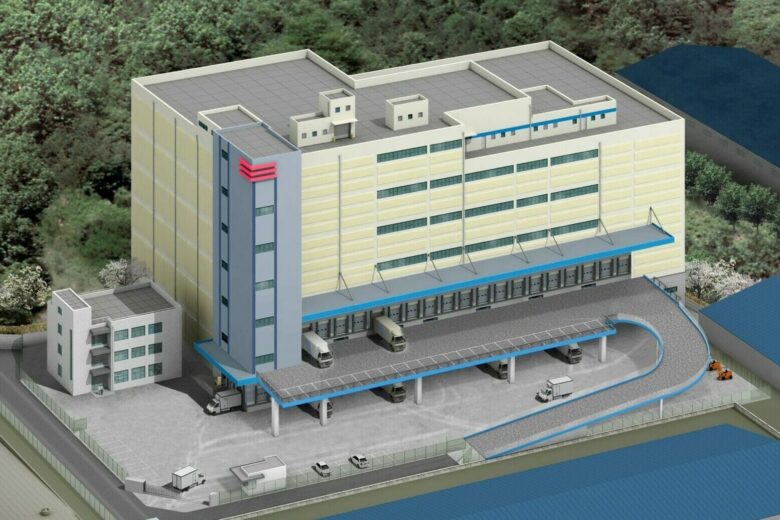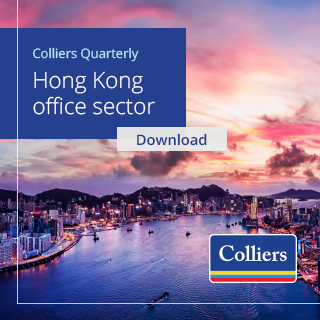CapitaLand-PGIM JV Buys $74M Cold Chain Facility in South Korea

CapitaLand and PGIM are planning major renovations for their newly acquired Gwangju cold chain facility
Singapore’s CapitaLand Investment (CLI) and PGIM Real Estate have launched a value-add warehouse investment vehicle in South Korea just months after setting up a core logistics strategy in the north Asian nation.
The joint venture has already acquired the Hansol Cold Storage Centre in Gwangju city for KRW 90.2 billion ($74 million) to seed the strategy, the partners said in a statement on Tuesday. They now plan to renovate the 26,705 square metre (287,450 square foot) facility for use as a distribution hub to meet the growing demand for last-mile delivery services in the South Korean capital.
“Given the favourable demand-supply dynamics and the cold storage logistics property’s prime location with convenient access to Seoul through the expressways, we expect the property to perform well,” said Matthew Sohn, head of Korea for CapitaLand Investment International. “After we upgrade the asset from a pure cold storage facility to a key cold storage logistics distribution centre, we expect to generate higher rental income as we lease the property to new tenants, tapping on South Korea’s growing ecommerce market.”
The new strategy marked CapitaLand Investment’s fourth South Korean private fund launched within the past 18 months, after the firm had also joined with PGIM in November to acquire a pair of cold chain facilities from a local catering firm through a core vehicle.
Boosting Logistics Portfolio to $100M
CapitaLand Investment said the acquisition of its third cold storage facility in the country will boost its logistics funds under management in South Korea to KRW 123.8 billion ($100 million) once the planned asset enhancement initiative for the property is completed.

Matthew Sohn, head of Korea for CapitaLand Investment International
“The launch of our value-add logistics fund in South Korea demonstrates CLI’s fund management expertise and our ability to execute a range of fund strategies, from core to development and value-add across different asset classes and geographies,” CapitaLand Investment’s chief executive of private equity real estate Simon Treacy said.
At the stated compensation, the CapitaLand and PGIM joint venture is paying the equivalent of nearly KRW 3.4 million per square metre for the cold chain asset.
The eight-month renovation will commence later this year after the master lease with Seoul-based Hansol Logistics expires in November and the anchor tenant vacates the facility. Enhancements will include improving the use of space, adding ramps and docks, upgrading mechanical and engineering equipment, as well as implementing sustainable features such as an energy recovery ventilator and LED lights.
Envisioned as a last-mile delivery hub serving Seoul’s southeast region, the freehold property is located near Taejeon Junction – a major transport hub in Gwangju – and is within a 30 minute drive of the capital via expressway.
CapitaLand Investment failed to disclose the identity of the seller while representatives from PGIM Real Estate declined to comment.
Going Cold in Korea
CapitaLand’s series of bets on cold storage facilities in Korea comes as the country continues to warm to online food delivery services.
Online food services did KRW 58.5 trillion in transactions last year, which was up 35 percent from a year earlier, according to data from Statistics Korea, as changes wrought by the pandemic and e-commerce penetration boosted the nascent industry. In 2020, the industry had grown by more than 50 percent.
CapitaLand Investment explained the series of cold chain acquisitions as elements in its growing array of strategies focused on “new economy assets” in Korea, which also include the KRW 140.7 billion Korea Data Centre Fund 2 it established in May last year, which was a follow-on to the first version of that digital infrastructure fund created in October 2020.
The SGX-listed property investment manager said its Korean portfolio is now estimated at S$1.82 billion ($1.34 million) in across eight private funds holding four office assets, three logistics facilities and two data centres that are both under development.
Through its wholly-owned lodging subsidiary, the Ascott Limited and its hospitality trust, Ascott Residence Trust, the group also has five serviced residences and hotels across the country.



